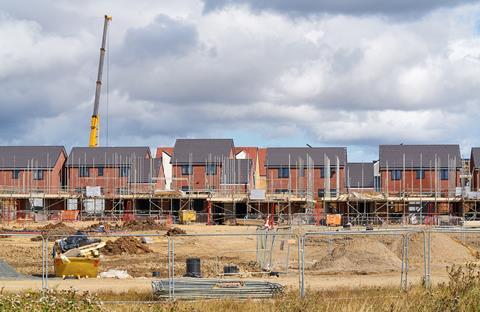Many of us felt a renewed sense of confidence at the start of 2020 – the government had a healthy majority, a path to Brexit, a commitment to spend on infrastructure and a healthy economy.

Covid-19 derailed all this and has brought so many challenges for us all, at a personal and a business level, but perhaps the greatest is uncertainty. Like many sectors, real estate and property development has entered the unknown, with much perceived wisdom called into question.
But one thing hasn’t changed: there’s still a desperate need for affordable housing. And with a number of sites and major regeneration projects affected by the pandemic, which has slowed the delivery of homes, there’s an opportunity for smaller and private developers to help bridge the gap.
The new ways of working have changed the way we look at design. Leisure areas and amenities such as gyms must now operate with strict social distancing measures, which they were not originally designed to accommodate.
Living with Covid brings desire for space and greater demand for mixed-use developments as more of us work from, or closer to, home to avoid commuting and crowded places. As flexible working becomes the new norm, people are also moving from town centres and urban areas to the regions, where they can afford larger properties.
Getting the balance right
So how do we balance the desire for space and bigger homes with the urgent need for more housing?
This will require a change in mindset on design to future-proof housing, as well as a shift by local authorities to ensure that planning classifications can accommodate changes in design.
Planning reforms are required to speed up developments and we have seen positive movement in this direction. Changes in permitted development rights will allow upward extension on purpose-built residential buildings to create new homes without the need for planning permission.

The proposals allow a far quicker route to securing consent for much-needed homes without the need for full planning applications, if the applicant meets requirements set in the prior approval process. Buildings also have to comply with guidelines, and construction methodology and building regulations are key considerations.
Modern methods of construction will enable speed of delivery, but it is important to ensure that additional storeys and weight do not undermine the structure and fabric of existing buildings and that they comply with regulations.
Against this backdrop and the new challenges faced by the sector, it is apt that Trailblazers celebrates the innovative thinkers and businesses that are focusing on new ways of supporting residential property.
Now more than ever, we need new ideas, technologies and construction methods to ensure that developments are fit for the future and reflect the Covid era’s new normal – and the changes to the way we work and live.
Steve Cooper is head of development and planning at Cluttons

You can attend the RESI Convention either online, or in person at Celtic Manor, Wales on 10-11 November.
Click here to book your tickets for this year’s RESI Convention





























No comments yet